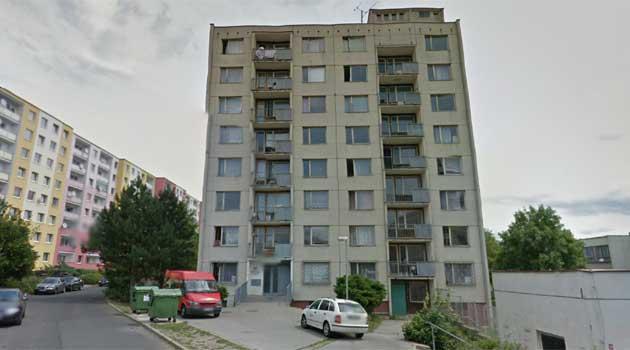Civil society members of Czech Govt Inter-ministerial Commission for Roma Community Affairs want housing discrimination addressed

Civil society members of the Czech Government Inter-ministerial Commission on
Roma Community Affairs completely identify with the conclusions reached by
experts regarding a recently published analysis commissioned by the Czech
Regional Development Ministry, “Social residential hotels as long-term housing
for the socially vulnerable” (Sociální ubytovny jako dlouhodobé bydlení pro
sociálně slabé). Even before the experts held a press conference on the issue,
the civil society members had independently communicated their opinion of how
the analysis was produced to ministry representatives.
According to the civil society Commission members, the Regional Development
Ministry has produced an analysis with irrelevant conclusions, as those
performing the analysis completely ignored essential factors that influence
access to housing by the target group. In a resolution, the Commission insisted
that the Regional Development Minister include representatives of the Commission
in the creation of future proposals on this issue.
At the most recent Commission session, the civil society members also
presented a document entitled “Recommendations for improving the situation of
Romani people in the field of housing” which calls on ministerial
representatives to start addressing discrimination on the apartment market. News
server Romea.cz publishes their 5 April press release in full translation below:
The civil society members of the Czech Government Inter-ministerial
Commission for Roma Community Affairs (Rada vlády ČR pro záležitosti romské
menšiny – hereinafter the “Commission”) completely identify with the conclusions
reached by experts on the recent analysis published by the Regional Development
Ministry (Ministerstvo pro místní rozvoj – hereinafter “MMR”) and entitled
“Social residential hotels as long-term housing for the socially vulnerable”.
Those experts presented their conclusions on 3 April 2013 at a press conference
entitled “Will the state introduce residential hotels for the poor that are
halfway to incarceration?” The civil society members of the Commission also
welcome the open letter on this issue from academic and research facilities and
organizations to representatives of the Labor and Social Affairs Ministry ("MPSV")
and the MMR.
Prior to the experts’ 3 April press conference, the civil society members of
the Commission had independently communicated their opinion on the way in which
this analysis was produced directly to representatives of the MMR at the
Commission session of 25 March 2013. Instead of the MMR developing tools to
improve access by impoverished households to standard housing on the basis of
relevant data about their situations, the ministry has produced an analysis as
background material for the creation of a proposal for a comprehensive social
housing system which reaches conclusions that cannot be considered either
objective or representative.
The research was performed on a very restricted sample of six residential
hotels, facilities where the housing conditions are light-years removed from the
actual situations predominating in most accommodation of this sort. Impoverished
families are paying overpriced rents in such facilities. Paradoxically, their
cost of living is many times higher than it would be in a classic rental
apartment.
In most residential hotels, tenants face insecurity of tenure, poor
structural and technical conditions, and practices that usually indirectly
violate their civil and human rights and their privacy. The authors of the
study, however, looked at this issue from the perspective of those who provide
such accommodation, not from the perspective of persons suffering from a lack of
housing, and completely ignored essential factors that influence the access to
housing by this target group.
No small number of Romani households is condemned to living in residential
hotels because of discrimination on the housing market. Nevertheless, on the
basis of data from this limited sample of residential hotels, and without
providing any other analysis of the situation, the authors of the study came to
the conclusion that accommodation in a residential hotel may be considered a
“home”, albeit a lower-quality one, and that it therefore constitutes acceptable
alternative accommodation that is dignified and humane.
In addition to this criticism of the analysis, the civil society members of
the Commission fundamentally disagree with the MMR and MPSV continuing to
postpone their fulfillment of the tasks allotted to them by the “Housing Concept
of the Czech Republic to 2020” (Koncepce bydlení ČR do roku 2020). On the basis
of that Concept, both ministries were supposed to have created a proposal for a
comprehensive solution to social housing that makes use of the institution of
accommodating persons who have lost their housing. The Commission has adopted a
resolution insisting that the Regional Development Minister involve Commission
representatives in the creation of that proposal.
At the Commission session, the civil society members presented a document
entitled “Recommendations for improving the situation of Romani people in the
field of housing” (Doporučení ke zlepšení situace Romů v oblasti bydlení) in
which they call on representatives of the ministries to start addressing
discrimination on the apartment market and to clearly outline the powers and
responsibilities of municipalities, regional authorities, and other entities in
the field of housing. Part of that effort should include the creation of
programs to prevent people from losing their housing, as well as crisis plans
for persons suffering from an acute lack of housing.
The document includes an appeal to transform the system of housing benefits
so that they respond to rising housing costs, including those involved in
securing rental housing on the market (such as paying security deposits). The
current housing subsidy support as set up by the state does not sufficiently
stimulate either private landlords or towns and villages to ensure the existence
of social forms of housing for socially excluded inhabitants. One barrier to the
creation of social housing is the high share of co-funding required from the
developer when applying for state subsidies.
Based on this document, the civil society members of the Commission are
demanding the introduction of a well-written law on social housing.